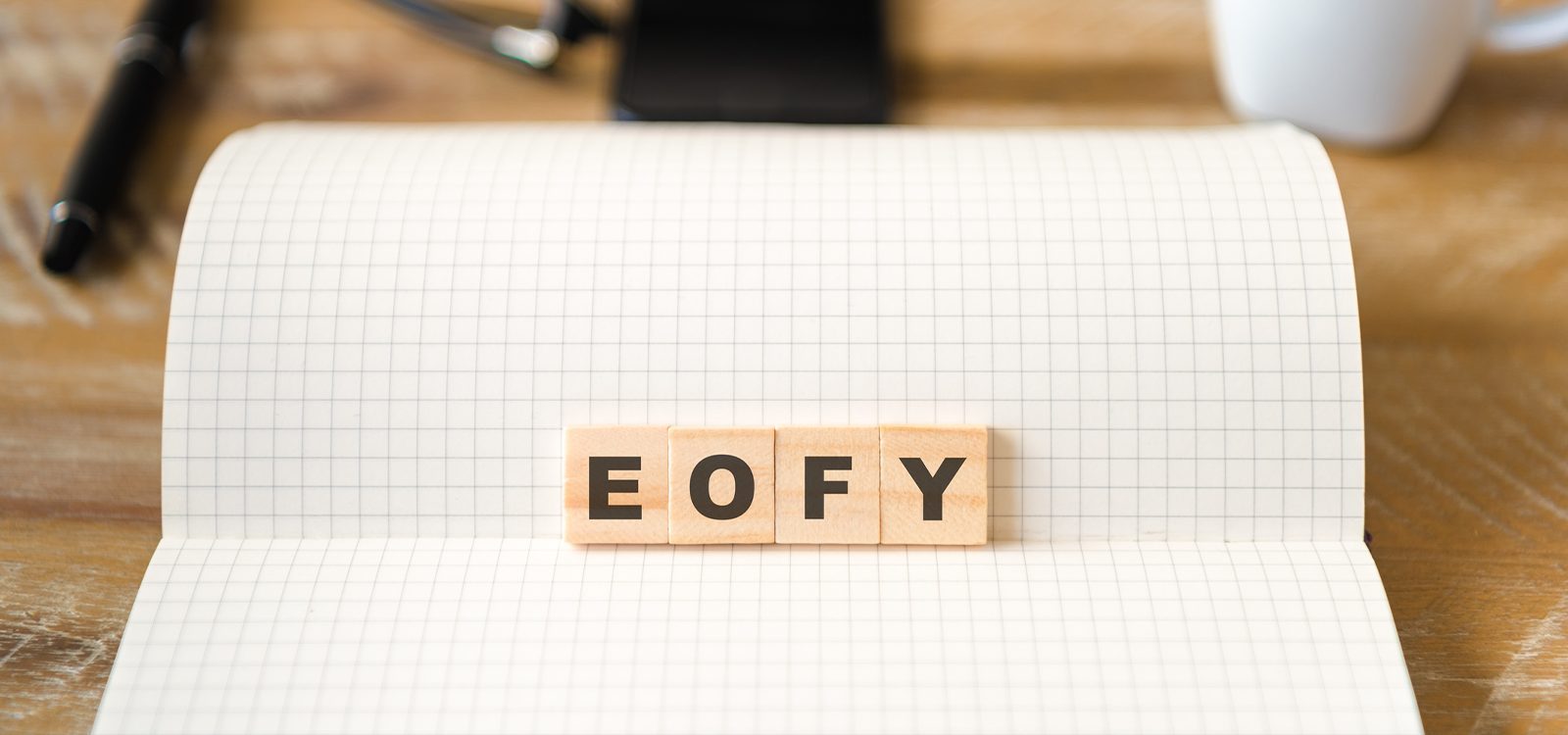
Get financially fit for EOFY
The end of the financial year (EOFY) means one thing – it’s tax time! Here are six strategies to consider in relation to your personal finances as the EOFY approaches, and a few reminders for completing your tax return after 30 June.
|
DISCLAIMER: The author is not a Registered Tax Agent. There are detailed eligibility requirements and/or limitations for the strategies suggested below. The author and the Actuaries Institute disclaim any liability for any of the strategies you may choose to implement. Please check with your professional adviser before acting on any of the suggestions in this article.
|
Here are some of the strategies to consider before 30 June.
1. Make a personal concessional contribution to superannuation
This strategy assumes that you are eligible to contribute and that the total of your employer’s Superannuation Guarantee contributions and your own salary sacrifice and personal concessional contributions will not exceed the concessional limit of $27,500 for 2021/22.
This strategy is likely to reduce your total tax payable (personal tax plus tax on contributions to super), provided that your personal marginal tax rate in 2021/22 exceeds the 15% tax rate on concessional contributions to superannuation.
Take a look at this resource by the Australian Taxation Office (ATO) on claiming deductions for personal super contributions for eligibility details and the process to follow. For example, you must notify your superannuation fund of your intention to claim a deduction for your contribution and obtain the fund’s acknowledgment before you submit your personal tax return.
2. Make a spouse contribution to superannuation
A non-concessional contribution of $3,000 to your spouse’s superannuation account can produce a tax offset of $540. This is if your spouse is under 75 years old and has assessable income (plus reportable fringe benefits and reportable employer superannuation contributions) of less than $37,000. For full details, see the ATO article Super-related tax offsets.
3. Get a superannuation co-contribution
If at least 10% of your income is from employment or from carrying on a business, and you have made at least one eligible personal super contribution for the year but your total adjusted income is less than $41,112, by making a non-concessional contribution of at least $1,000 you may be eligible for a government co-contribution of up to $500. The maximum co-contribution phases out as income rises from $41,112 to $56,112.
There are other eligibility criteria – see Super co-contributions on the ATO website.
4. Consider your capital gains position
If you have realised capital gains in the current tax year, but you also have unrealised losses in your investment portfolio, consider realising some of those losses to mitigate the effect of the capital gains.
Note that the ATO may deem selling an asset, followed by quickly repurchasing the same asset or a very similar asset, to be a ‘wash sale’. Doing so would breach anti-avoidance provisions outlined in Part IV A of the Income Tax Assessment Act 1936. See the ATO’s Taxation Ruling TR 2008/1 for more details.
5. If you have invested in shares using borrowed funds, consider pre-paying the interest on your margin loan
Usually, this will lead to a lower interest rate and a higher tax deduction in the current tax year. However you should also consider your cash flow situation and whether your marginal tax rate is likely to be the same in 2022/23 as it is in 2021/22.
6. If your marginal tax rate is likely to be higher in 2022/23 than in 2021/22, consider bringing forward income (where possible) or deferring deductible expenses
Conversely, if your marginal tax rate is likely to be lower in 2022/23 than in 2021/22, consider deferring income and bringing forward deductible expenses. The ATO’s rules about prepayment of expenses are covered in their article General information about prepaid expenses.
With regard to suggestion no.6, it’s worth noting that the marginal tax rate scale that will apply in 2022/23 is the same as in 2021/22. Therefore, your marginal tax rate will only vary if (between 2021/22 and 2022/23) your income crosses one of the tax thresholds ($18,200, $45,000, $120,000 or $180,000).
You may have some flexibility in regards to timing of expenses such as subscriptions, business travel expenses, training events, leases, rent, phone, internet, insurance and business asset repairs. However, under the ‘12-month rule’, any prepayments should not be for goods or services to be provided more than one year after the date of payment.
![]()
And since we are talking tax, when you start preparing your tax return after 30 June, it’s obviously in your interest to include all deductions to which you are entitled. Here are some of the most commonly forgotten items, compiled by etax, Dolman Bateman and myob:
- Tax agent fees (from etax)
- Union/professional membership fees (from etax)
- Work-related car expenses (from etax)
- Home office expenses (from etax)
- Mobile phone deduction for work-related calls (from etax)
- Donations of $2 or more to appropriate charitable organisations (from Dolman Bateman)
- Rental property expenses (from Dolman Bateman)
- Income protection insurance (from Dolman Bateman)
- Medical expenses in excess of a threshold (from Dolman Bateman)
- Self-education expenses (from Dolman Bateman)
- Laundry expenses (from Dolman Bateman)
- Internet expenses if you work from home and your internet connection is in your name (from myob)
Items such as home office expenses may well be much more substantial in the last couple of years than historically, due to the much greater (COVID-induced) frequency of working from home. If you haven’t claimed for your home office before, but you have often worked from home during the pandemic, consider the size of your potential deduction in 2021/22.
The best resource to consult for detail on eligibility requirements is the ATO page Deductions you can claim. This resource outlines details of what you can claim, alternative available methods of calculating some deductible expenses, and the records you will need to maintain.
CPD: Actuaries Institute Members can claim two CPD points for every hour of reading articles on Actuaries Digital.






